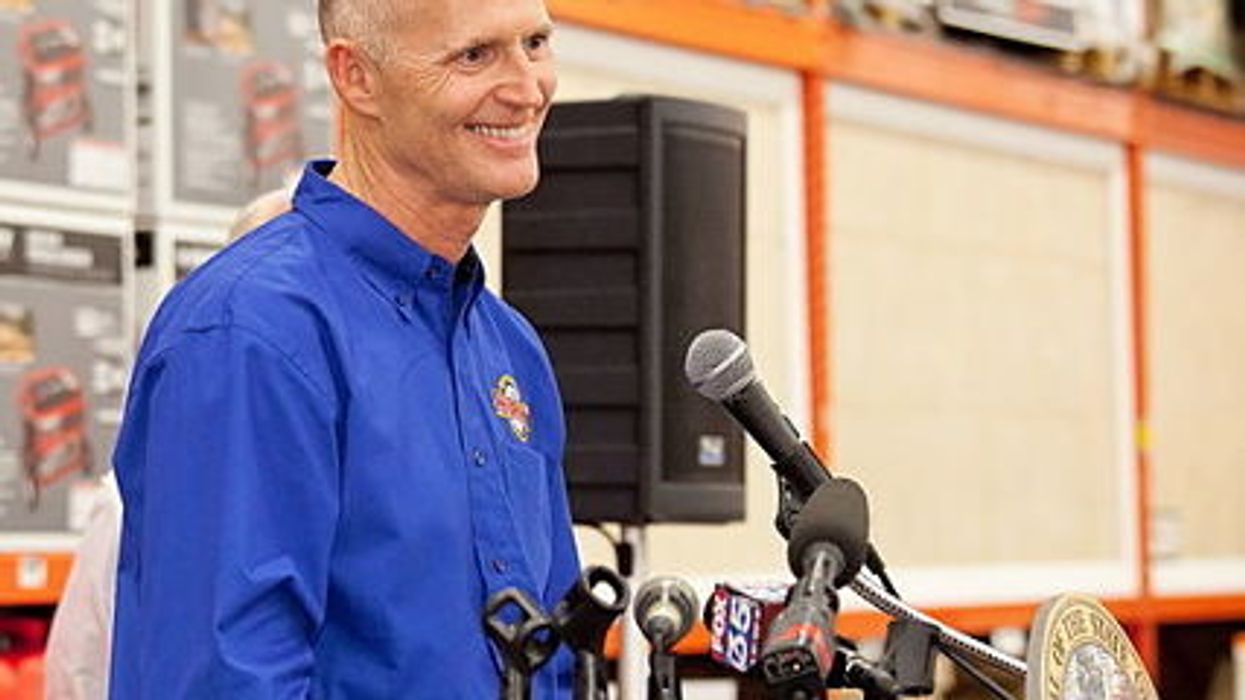No Labels Has No Takers For Its Spoiler Campaign Against Biden
It looks like it’s time for No Labels to give up the ghost. The ostensibly centrist organization has long been floating a presidential “unity ticket” to bridge the partisan divide. However, when you can’t count on either Sens. Joe Manchin’s or Kyrsten Sinema’s ego to keep you afloat, you’re toast.
On Tuesday, NBC News published a rundown of all the potential presidential candidates besides Manchin and Sinema whom No Labels has tried—and failed—to secure for their third-party folly:
- Former GOP Rep. Liz Cheney of Wyoming
- Former GOP Maryland Gov. Larry Hogan
- GOP Georgia Gov. Brian Kemp
- Former GOP New Jersey Gov. Chris Christie
- Former GOP Indiana Gov. Mitch Daniels
- GOP New Hampshire Gov. Chris Sununu
- Former U.N. Ambassador Nikki Haley
- Former Democratic Massachusetts Gov. Deval Patrick
- Businessman Mark Cuban
- Retired Navy Adm. William McRaven
- Actor Dwayne “The Rock” Johnson
The latest person to brush off No Labels is former Georgia Lt. Gov. Geoff Duncan, an anti-Trump Republican. He told The Atlanta Journal-Constitution that while “it was an honor to be approached,” he wants to spend his time on fixing the Republican Party.
Even former North Carolina Gov. Pat McCrory—who sparred with Daily Kos’ Markos Moulitsas on NBC’s Meet the Press last August—has jumped ship. McCrory, a Republican, had the group’s national co-chair until resigning last week. “I gave it my all for over a year as volunteer co-chair, but it is now time to move on,” McCrory told NBC News. That came after the group decided it was going forward with running its own presidential ticket—if they can find someone to head it up, that is.
No Labels announced last week that it was forming a vetting committee to identify their candidates for president and vice president, which means scraping the bottom of the barrel to find someone willing to associate themselves with the group. Their process, like just about everything else in the organization including who’s financing it, is being kept secret.
The organization has bled high-level staff in the past year, including its “vice chair, two vice presidents, two national co-chairs, the head of its digital operation, the director of its political field program and more,” according to NBC News. Its staff appears disgruntled too, with one anonymously telling NBC, “You are constantly being asked to sign NDAs in that organization.”
Former allies are turning on the group as well, including one of its influential early supporters, “No Labels seems to have become the victim of its own arrogance,” attorney Richard J. Davis wrote on Tuesday. Davis served as assistant secretary of the Treasury Department in President Jimmy Carter’s administration and as an assistant special prosecutor during Watergate. “Its leaders are so convinced of the righteousness of their cause that they developed a dangerous tunnel vision,” he said.
No Labels’ latest plan is to play this farce of a third-party run into August, at which time they’ll pull the plug on it if it hasn’t gained serious traction. But this plan is even being mocked by the centrist think tank Third Way.
“No Labels nominates their presidential ticket in March. Over the next four months, the candidates pour their heart, soul, and millions of dollars into gaining ballot access and persuading voters, all the while not knowing whether their party will submit their names into nomination,” Third Way pointed out in a blog post this past Thursday.
“The candidates would be running with one foot in the door and one foot out. And the No Labels Party leaders would retain an unprecedented amount of power to pull the rug out from under their campaign.”
No wonder No Labels can’t find any takers. But at least they have another four or five months to grift their high-dollar donors, which seems to be the primary motivation for No Labels’ co-founder and CEO Nancy Jacobson, who holds the key. It’s her ego trip.
“This is Nancy’s decision, and her decision alone,” a source told NBC News. “If she wants a ticket, we’re getting a ticket.”
Reprinted with permission from Daily Kos.












